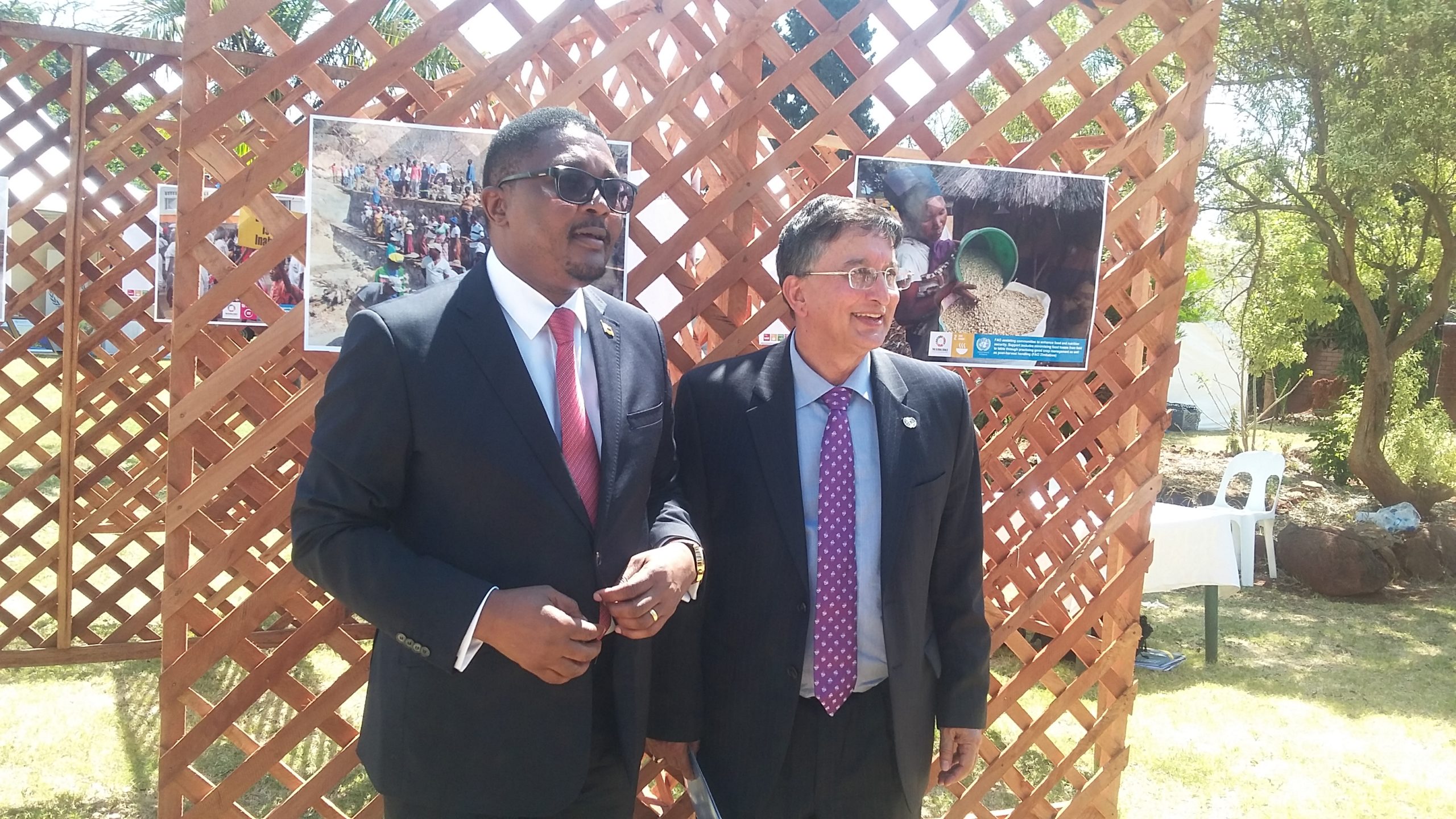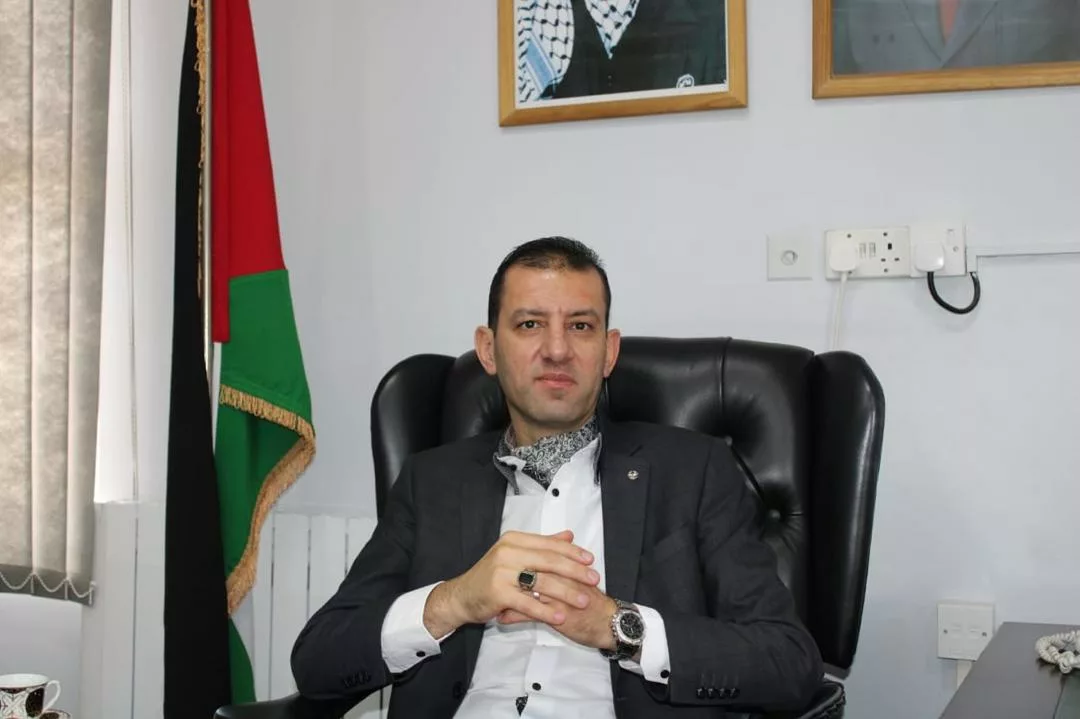By Byron Mutingwende
The promotion and protection of human rights is one of the key purposes and guiding principles of the United Nations (UN), Elasto Mugwadi, the Chairperson of the Zimbabwe Human Rights Commission (ZHRC) has said.

Mugwadi made the remarks at the commemoration of the UN Day held at the World Health Organisation (WHO) in Harare on 23 October 2017. The UN Day is celebrated on 24 October annually in honour of the anniversary of the signing of the United Nations Charter by the then UN Member States assembled in San-Francisco on 26 June 1945 when they committed themselves to save future generations from the ravages of war meted out on humanity during the First and Second World Wars.
“When I was browsing through the 111 Articles of the Founding Charter, I noticed that the term “human rights” had been mentioned not less than 7 times, making the promotion and protection of human rights one of the key purposes and guiding principles of the United Nations and positioning the precursor of the 1948 Universal Declaration of Human Rights which brought human rights into the realm of international law,” Mugwadi said.
He hailed the UN for promoting and protecting human rights through a multiplicity of legal instruments and practical ground activities. The UN has been giving technical and financial support, through the UNDP to the country’s independent commissions supporting democracy as provided for in Chapter 12 of the Constitution. These are the Zimbabwe Human Rights Commission, Zimbabwe Electoral Commission, Zimbabwe Gender Commission, Zimbabwe Media Commission and the National Peace and Reconciliation Commission.
“On behalf of the ZHRC, let me pay tribute to the immense contribution of the United Nations, through the UNDP, towards the capacitation of the Commission through institutional support under the Zimbabwe United Nations Development Assistance Framework (ZUNDAF I and II).”
The UNDP supported the exchange of experiences and best practices through funding of visits by Commissioners to other regional Commissions such as the Kenyan and South African Commissions and attendance at international human rights conferences to bring the Commissioners up to speed on the role and mandate of National Human Rights institutions. The UNDP and other development partners procured office furniture, equipment and other tolls of trade to the ZHRC Secretariat.
The UN plays a critical role in supporting the government of Zimbabwe to build strong and solid institutions that can assume a leading role in the promotion and protection of human rights.
Bishow Parajuli, the UN Zimbabwe Resident Coordinator alluded to the world body’s vision of tolerance, universal human rights, peaceful co-existence and promotion of inclusive socio-economic growth.
“In the spirit of global solidarity and shared responsibility under the UN Charter, today, we also reflect on how we can do better and do more to achieve the 2030 Agenda for humanity, prosperity, peace and the planet,” Parajuli said.
He praised the communities for taking initiatives to restore and build their livelihoods and community resilience with UN’s joint support.
“Many households have benefited from access to planet-friendly solar panels; the cash transfer initiatives are benefitting women and vulnerable groups, enabling them to make choices for themselves and their families and allowing them to set saving schemes to diversify their livelihoods. The food assistance they receive is being put to good use, channelled through Food Assistance for Asset Creation projects that build rural resilience. Young people have acquired skills that help them to start up their enterprises and earn incomes, and village savings and loan schemes help by providing start-up credits.”
In 2016, the UN continued to support the Government of Zimbabwe in responding to the multi-sectoral needs of the people affected by the El Nino induced drought, the worst in 35 years. Some of the same vulnerable communities were deeply affected by flooding earlier this year, with many losses of life and livelihoods and damage to the infrastructure. Parallel to the humanitarian response, the UN continued its engagement in supporting sustainable development across the SDGs. It is also promoting the SDGs through scaled up engagement with youth groups, schools, universities and civil society organisations.
The UN targets and prioritises the most at-risk populations and addresses the root causes of multi-dimensional vulnerabilities and support to build resilience.
“As such, this is a call for all partners to join hands for a transformative growth and investment to make the SDGs agenda a reality in Zimbabwe. The recently held Development Cooperation Forum, which builds on the very effective humanitarian response coordination, provides a platform for all development stakeholders to engage and advance the SDGs in Zimbabwe,” Parajuli said.
The UN pledged to continue support the work of the commissions and stand with the Government to implement the 151 Universal Periodic Review recommendations in advancing the promotion and protection of human rights.
Walter Mzembi, the newly appointed Minister of Foreign Affairs, said he would work hard, together with the UN and other development partners, to bring Zimbabwe back to the global village as an influential stakeholder in the promotion of sustainable development.






